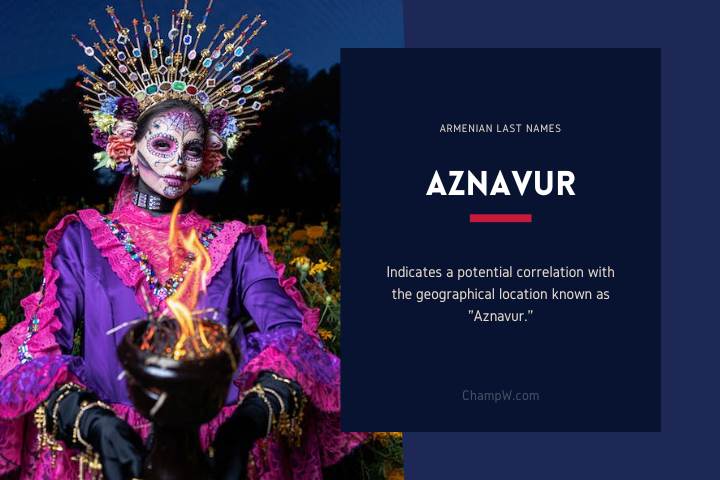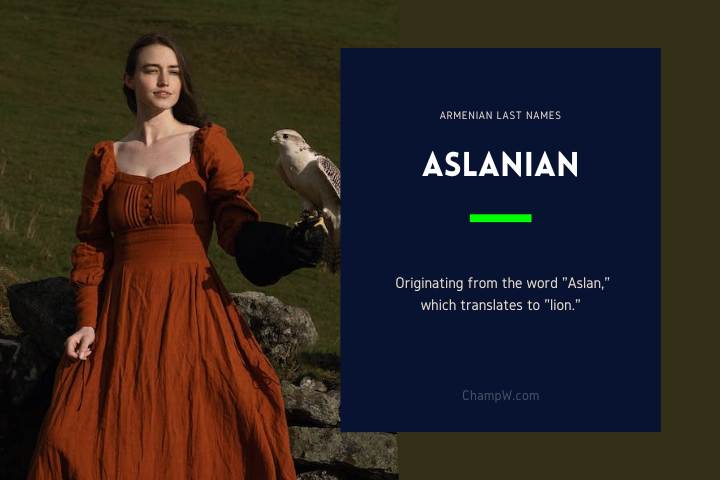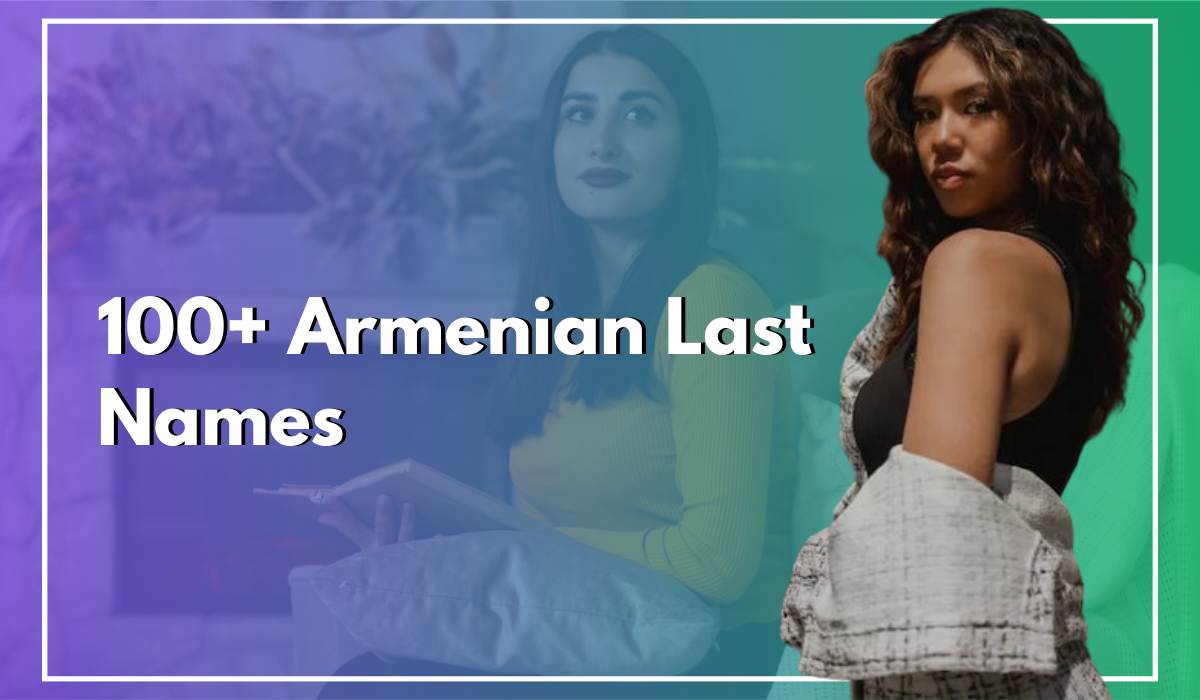Armenian last names carry a rich history and cultural significance that often goes unnoticed. Have you ever wondered about the stories behind these names? In this article, we will delve into the intriguing world of Armenian last names and explore their origins, meanings, and unique characteristics.
By understanding the significance of these names, we can gain a deeper appreciation for the Armenian culture and its diverse heritage. Throughout this exploration, we will examine three main points: the influence of geography on Armenian last names, the impact of historical events on naming practices, and the symbolism embedded within these names.
Join us as we unravel the fascinating tapestry of Armenian last names and uncover the hidden stories they hold.
Armenian last names
Dive deep into the world of Armenian last names! Understand their unique meanings and fascinating history.
Baghdasarian- A name that originates from “Baghdad,” signifying familial connections to the urban center.
Terzian- Denoting “tailor,” this name implies a familial vocation.
Melikian- “Melik,” from which it is derived, signifies “prince” or “noble.”
Papazian- Denotes a lineage associated with the clergy, as its meaning is “priest.”
Karapetian- “Karapet,” which translates to “baptist” or “John the Baptist.”
Sarkissian- Originating from the Armenian form “Sarkis,” “Sergius.”
Aghajanian- Indicates a possible noble or lordly lineage affiliation.
Arslanian- Originating from the word “arslan,” which translates to “lion.”
Tovmassian- Denoting a familial connection to Thomas, the name originates from “Tovmas,” the Armenian equivalent of the name Thomas.
Keshishian- Denoting a “religious leader” or “bishop.”
Hovhannisian- Originally “Hovhannes,” the Armenian equivalent of the name John.
Minassian- A name derived from the Greek word “Minas,” which translates to “good fortune” or “luck.”
Manukian- The term “Manuk,” which translates to “gift of God.”
Artinian- Denoting a lineage associated with Arthur, the name originates from “Artin,” the Armenian equivalent of the name Arthur.
Babayan- “Baba,” from which it is derived, signifies “father” or “patriarch.”
Aslanian- Originating from the word “Aslan,” which translates to “lion.”
Topalian- Denotes a family with ancestral connections to the location “Topal.”
Bedrosian- Originating from “Bedros,” which means “Peter” in Armenian.
Garabedian- Indicates a potential correlation with a geographical location known as “Garab.”

Tavitian- Scriptural origin: “Tavit,” signifying “David.”
Boghosian- Literally translated as “Boghos,” the Armenian form of Paul.
Donabedian- Indicates a potential correlation with a geographical location known as “Donab.”
Vartanian- Originating from the verb “Vartan,” which translates to “rose.”
Hamparian- Denotes a family with ancestral connections to the location “Hampar.”
Kaprielian- Originally “Kapriel,” the Armenian equivalent of Gabriel.
Najarian- Indicates a potential correlation with a geographical location known as “Najar.”
Sahakian- “Sahak,” the Armenian form of the given name Isaac.
Maronian- Indicative of a household with connections to the location “Maron.”
Voskanian- “Voskan,” which translates to “strong” or “vigorous.”
Bagratian- This signifies a noble lineage-affiliated family, potentially with the Bagratid dynasty.
Daronian- Insinuates a correlation with a geographical location known as “Daron.”
Armanian- “Arman,” which translates to “desire” or “wish.”
Seropian- Denotes a family with ancestral connections to the location “Sero.”
Parseghian- Originally “Parsegh,” the Armenian equivalent of Bartholomew.
Krikorian- Indicates a relation to a location known as “Krikor.”
Movsesian- “Movses,” the Armenian equivalent of the name Moses.
Soghomonian- Family with ties to the location denoted by “Soghomon.”
Varoujian- “Varoujan,” which translates to “rose prince.”
Zorian- Insinuates a correlation with the geographical region known as “Zor.”
Haroutunian- From the Armenian word “Haroutyun,” which means “Resurrection” or “Easter.”
Mardirosian- “Mardiros,” which translates to “son of a warrior.”
Shahbazian- Denotes a lineage that extends to the realm of royalty or princedom.
Der Bedrosian- Indicates a relation to a location known as “Der Bedros.”
Talarian- “Talar,” from which it is derived, signifies “church” or “monastery.”
Ashjian- Family with ties to the location denoted by “Ash.”
Kevorkian- Originating from “Kevork,” the form of George in Armenian.
Paronian- Indicates a relation to a location known as “Paron.”
Dikranian- “Dikran,” the Armenian equivalent of the noun “Tigran.”
Arslanian- Family with ties to the location denoted by “Arslan.”
Seropiantz- Pronounced “Serop,” a prevalent given name in Armenian.
Araxie- Indicates a potential correlation with the Arax River, a momentous waterway in Armenia.
Nahabedian- “Nahapet,” which translates to “patriarch” or “chief.”
Tavitian- Family with ties to the location denoted by “Tavit.”
Meguerditchian- “Meguerditch,” the Armenian equivalent of the name Nehemiah.
Shahnazarian- Insinuates a correlation with a geographical location known as “Shahnazar.”
Zareh- “Zareh,” which translates to “sunrise” or “dawn.”
Garibian- Family with ties to the location denoted by “Garib.”
Zarmanian- An origin “Zarman,” which translates to “precious.”
Hratchian- Family with ties to the location denoted by “Hratch.”
Serovpep- Literally “Serovpep,” an offshoot of “Serop.”
Azadigian- “Azadig,” which translates to “free” or “liberator.”

Daronian- Insinuates a correlation with a geographical location known as “Daron.”
Vigen- “Vigen,” which translates to “alive” or “living.”
Sarafian- Family with ties to the location denoted by “Saraf.”
Norian- From the word “Nor,” which translates to “new.”
Khachaturian- “Khachatur,” the Armenian equivalent of “Khachaturian.”
Levonian- Indicates a potential correlation with a geographical location denoted as “Levon.”
Avedisian- “Avedis,” the Armenian equivalent of the name Eustace.
Siranoush- Denotes “pleasant and sweet.”
Zaroukian- Denotes a household with ancestral connections to the location “Zarouk.”
Hovsepian- Originally “Hovsep,” the Armenian equivalent of the name Joseph.
Aznavourian- Indicates a potential correlation with a geographical location known as “Aznavour.”
Torkomian- “Torkom,” which translates to “Armenian.”
Vartanoush- “Vartan,” which translates to “rose.”
Krikor- Originally “Krikor,” the Armenian equivalent of the name Gregory.
Aradig- Insinuates a proximity to a location known as “Arad.”
Arek- “Arek,” which translates to “brave” or “courageous.”
Shoushanian- Denotes a family with ancestral connections to the location “Shoushan.”
Arpi- Denoting “sunlight” or “sun rays.”
Avetis- “Avetis,” which translates to “good news” or “gospel.”
Arshagouni- Originating from “Arshag,” the Armenian transcription of the regal name Arsaces.
Zarevand- Indicates a relation to a location known as “Zarevand.”
Sahag- “Sahag,” the Armenian form of the given name Isaac.
Talar- The definition of “monastery” or “church.”
Kevork- Originating from “Kevork,” the form of George in Armenian.
Melkon- Denoting a “little king” or “small king.”
Sarvenaz- “Sarv,” which translates to “cypress tree,” is joined with “naz,” which signifies “dear” or “beloved.”
Tigranian- Family with ties to the location denoted by “Tigran.”
Aznavur- Indicates a potential correlation with the geographical location known as “Aznavur.”
Tatevos- The term “Tatevos,” which translates to “gift of God.”
Garo- The definition of “knight” or “warrior.”
Shant- Originating from the word “Shant,” which signifies “peace.”
Jirair- Jirair is frequently employed as a given name in Armenian, although it can also be utilized as a surname.
Vano- “Vano,” which translates to “vanquisher” or “conqueror.”
Artin- Denoted as “little bear.”
Daron- Insinuates a correlation with a geographical location known as “Daron.”
Ararat- Bears the name of Mount Ararat, a culturally significant landmark in Armenia.
Nareg- “Nareg,” which translates to “pomegranate.”
Sosse- An ordinary given name in Armenian.
Vosgi- An origin “Vosgi,” which translates to “golden.”
Also Read:
Final Words
Armenian last names hold a rich history and cultural significance. They often reflect ancestral occupations, geographical locations, or family lineage. Understanding the meaning and origins of these names can provide valuable insights into Armenian heritage and identity. While some names have evolved over time or been influenced by external factors, the preservation of Armenian last names remains an important part of cultural heritage.
Exploring the stories behind these names can deepen our appreciation for the diversity and complexity of Armenian society. So, the next time you come across an Armenian last name, take a moment to reflect on the hidden stories and connections it may hold.
